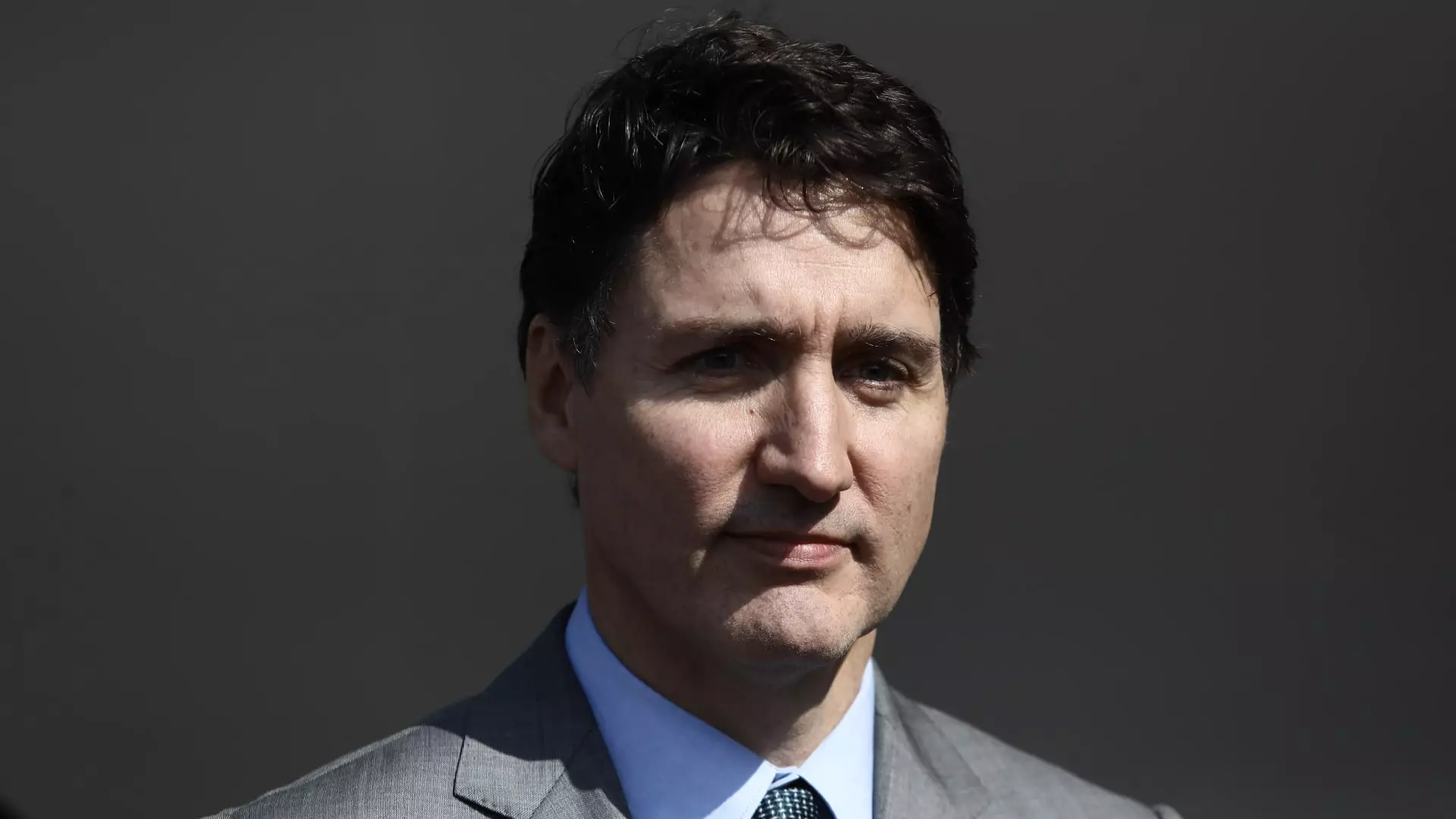In a significant turn of events that could reshape the political landscape of Canada, Prime Minister Justin Trudeau appears to be on the brink of announcing his resignation. Speculation surrounding his potential departure has grown following reports that he might communicate his intentions as early as Monday. This development is particularly notable as the Liberal Party grapples with declining support in the face of formidable opposition from the Conservatives, likely paving the way for new leadership amid growing calls for immediate action.
Assuming the leadership of the Liberal Party in 2013, Trudeau emerged as a beacon of hope during a tumultuous period when the party found itself languishing in third place. His ascent to power in 2015 was built on a foundation of promises, including an ambitious progressive agenda that emphasized social justice, women’s rights, and environmental initiatives. However, as is often the case in politics, the passage of time has borne witness to evolving public sentiment and the harsh realities of governance, which have gradually eroded his initial popularity.
Recent polling data paints a worrying picture for the Liberal Party, showcasing a notable decline in support and prompting a faction of Liberal parliamentarians to advocate for Trudeau’s resignation. The pervasive fear of a substantial electoral defeat looms large, with some members suggesting that a swift leadership transition may invigorate the party’s prospects. Compounding this pressure are the increasingly vocal criticisms of Trudeau’s handling of key issues, such as economic inflation and immigration policy, which have eroded public confidence and heightened dissatisfaction among constituents.
Should Trudeau officially announce his resignation, the political arena becomes rife with speculation about who might assume the role of interim leader. Notably, Finance Minister Dominic LeBlanc has been mentioned as a potential successor; however, his own aspirations for a permanent leadership position complicate matters. The question of continuity is pivotal—and whether Trudeau will remain in power during the leadership transition period remains uncertain. Such dynamics point toward a critical juncture for the Liberal Party, which faces not only internal challenges but also significant external competition.
Trudeau’s recent political maneuvering has not been without controversy. The fallout from his perceived demotion of Finance Minister Chrystia Freeland, a trusted ally, exemplifies the growing unrest within the party. Freeland’s decision to resign in protest and her public criticism of Trudeau’s leadership approach have further underscored fissures in party unity. This incident has fueled an already charged political atmosphere, complicating the Prime Minister’s ability to maintain control over dissenting voices within his ranks.
Amid all the speculation regarding Trudeau’s future, the broader implications for Canadian governance remain insistent. His administration, marked by substantial fiscal expenditures aimed at cushioning the impact of the pandemic, has resulted in unprecedented budget deficits. However, soaring inflation and surging housing costs have paradoxically rendered these efforts insufficient in quelling public frustration. The pressure is mounting not only on Trudeau but on the entire Liberal platform to address these pressing concerns effectively.
As potential resignation looms over Trudeau’s political horizon, the forthcoming days are critical for both him and the Liberal Party. Should he withdraw, Canada could be propelled into a new political era, ushering in fresh leadership that may realign party priorities in the face of mounting challenges. For now, uncertainty reigns—not just regarding Trudeau’s decisions, but also the future direction of a party that once embodied progressivity yet now grapples with the complex realities of governance. The coming weeks will undoubtedly prove to be a watershed moment in Canadian politics.


Leave a Reply